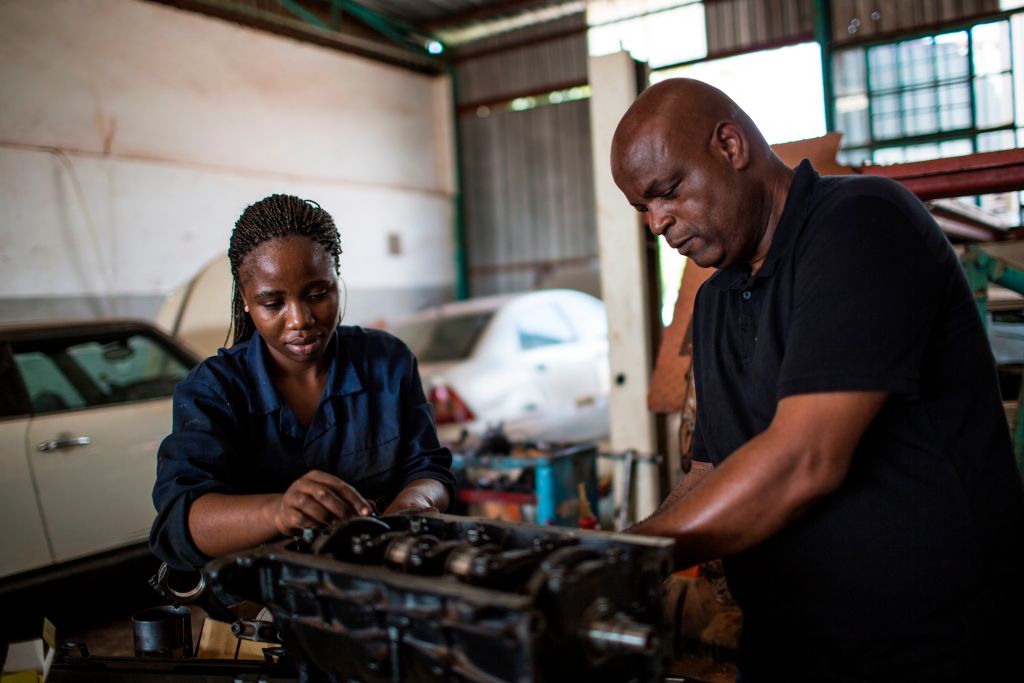
Are Diesel Engines More Expensive to Repair?
Diesel engines offer advantages such as tons of torque and excellent fuel economy. However, there are some cons to opting for a diesel engine. For example, you may have heard that diesel engines cost more to repair. We’ll take a closer look at whether this is true with some help from CarsDirect.com.

Diesel engines require fewer appointments for repair and maintenance
Compared to a gasoline-powered vehicle, a diesel car or truck can have lower rates of maintenance, depending on the model. A diesel engine doesn’t require spark plugs or distributors, which figures more heavily into the maintenance schedule of a vehicle with a traditional internal combustion engine. Also, diesel fuel is light enough to work as a lubricant as it flows through the engine, which helps to keep the engine functioning properly.
Oil changes can be less frequent for diesel models as well. For example, if you are driving a diesel truck under normal conditions, you can get away with changing it every 7,500 miles, according to another article on CarsDirect.com.
Oil changes may become more frequent depending on whether you’re towing a moderate or heavy load or idling a lot. But, it’s still less frequent than with a gas-powered car or truck, which might require an oil change every 3,500 to 5,000 miles.
Also, an efficient diesel engine experiences less wear than a gas engine, which means it will spend less time in the shop. It is built to withstand higher compression than its gas-powered counterpart, which makes it more efficient the more you drive it. All of these things add up to make a diesel vehicle cheaper to maintain overall.
Cost of parts, supplies, and labor
Despite the cheaper overall maintenance of a diesel car, you may pay more for parts and labor depending on the diesel vehicle you drive. Some hard-to-find or rare diesel engine parts may be more expensive even though many parts are less expensive than they used to be when there were fewer diesel models on the market.
Specific parts such as starters, alternators, batteries, and water pumps could cost more but, as we’ve previously mentioned, they are less likely to fail.
And even though oil changes are generally less frequent for a diesel vehicle, they may cost up to twice as much because of the supplies they require. Diesel truck oil, in particular, contains more detergents and additives, making it more costly. Diesel-powered vehicles also have a higher oil capacity and oil filters can cost more.
Labor rates for working on diesel vehicles are often higher than on gas vehicles. There are a couple of reasons for this difference. First, because there are fewer diesel cars and trucks on the roads, there are fewer technicians qualified to work on them. Although it may depend on the type of diesel car you drive, the relative scarcity of trained diesel mechanics can drive up the cost of labor.
Second, labor rates may be higher for diesel models because access to the engines isn’t as straightforward as with gas engines. The work may take longer to perform as a result. And some newer diesel vehicles are required to have a reservoir of diesel exhaust fluid to neutralize pollutants, which adds to the time and cost of labor to fill.
Are diesel engines more costly to repair?
In the grand scheme of things, not really. While you may spend more on maintaining a diesel truck or car, you’ll probably take it to the garage much less frequently than you would a gas-powered vehicle.
Besides maintenance costs, it also helps to look at the total cost of ownership when considering both kinds of engines. For example, when it comes to fuel economy, you most likely won’t have to fill up as often with a diesel engine. That also can help to offset maintenance costs.
If you do a fair amount of highway driving or you need the torque for towing or both, the efficiency and durability that a diesel engine offers will be still an excellent tradeoff for its higher repair and maintenance costs.


